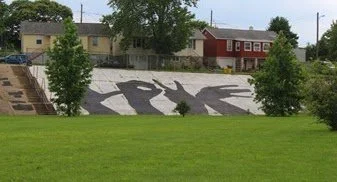Summer Co-lab Experience
Every summer, UMBC offers a four-week paid interdisciplinary research internship for undergraduate students. Students are placed on teams of three, receive trainings in narrative-based research, and then partner with a host department or initiative that is responsible for guiding them through the project. In 2018, The Shriver Center was selected as a host department to work with a team of students on a Race and Social Justice project. This was an opportunity to put the TRHT framework into practice.
Over the course of three weeks, students received research training, participated in daily written reflections, and experienced two days of racial healing circles. These racial healing circles were led by a key partner in our TRHT work, WombWork Productions, Inc., that uses the Virtues Project™ as a way of facilitating conversations about race. As a space for both truth telling and reflection, the circles allowed students to dive deeper into their own identities as they related to the experience. Students also collected some of the baseline narratives that surround Baltimore City’s young people, which culminated into a final video project.
Final Video Project
Students aimed to collect the real narratives of Baltimore by interviewing youth and youth workers in their communities. Entering into these spaces with a lens for racial healing, an ear for narrative, and an understanding of the role self-reflection must play resulted in an experience that was equally meaningful for all involved. Young people guided our students through their school communities, highlighting the things that made them great.
Negative Narratives About Baltimore
Key Questions Students Considered Throughout Their Experience
How do you share your work with campus stakeholders (students, faculty, staff) to explain what it means to do service in Baltimore through a TRHT lens?
Through this process, how are false narratives exposed, and how are narratives of truth strengthened?
What role do your own reflections and aesthetic choices play within the work? Whose voices and experiences are being privileged?
How do your personal reflections help to validate the TRHT model itself and show your own transformations as you go along?
How do your own reflections and experiences intersect with the reflections and experiences of others you are meeting along the way?


